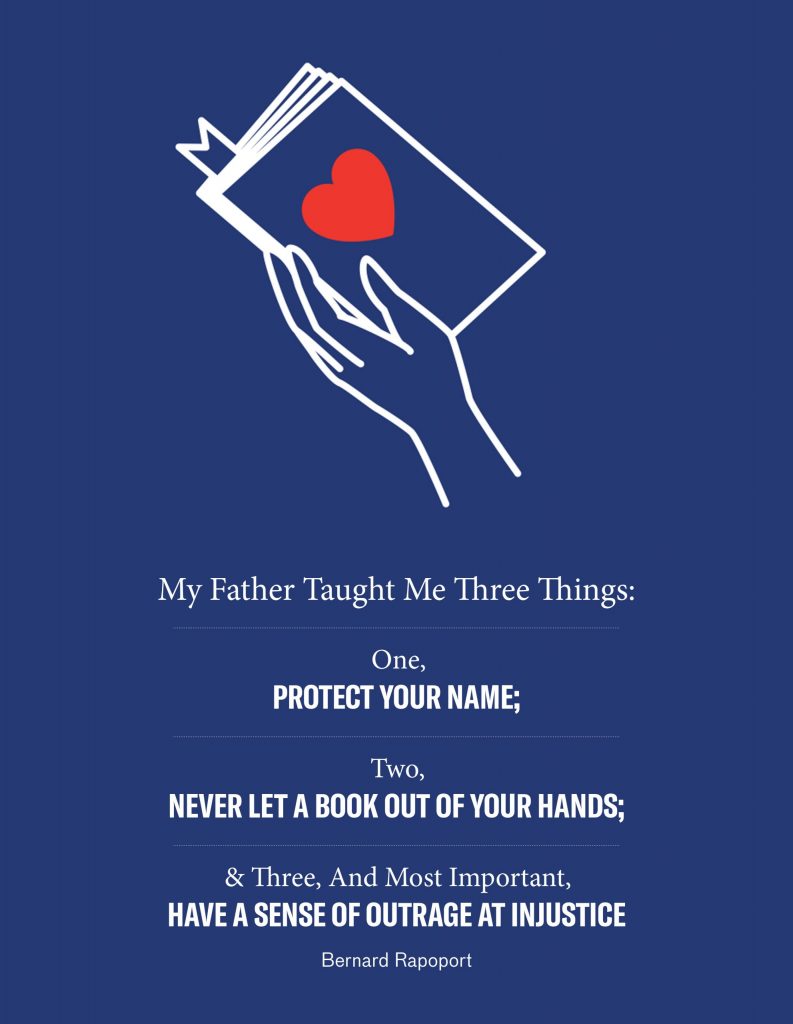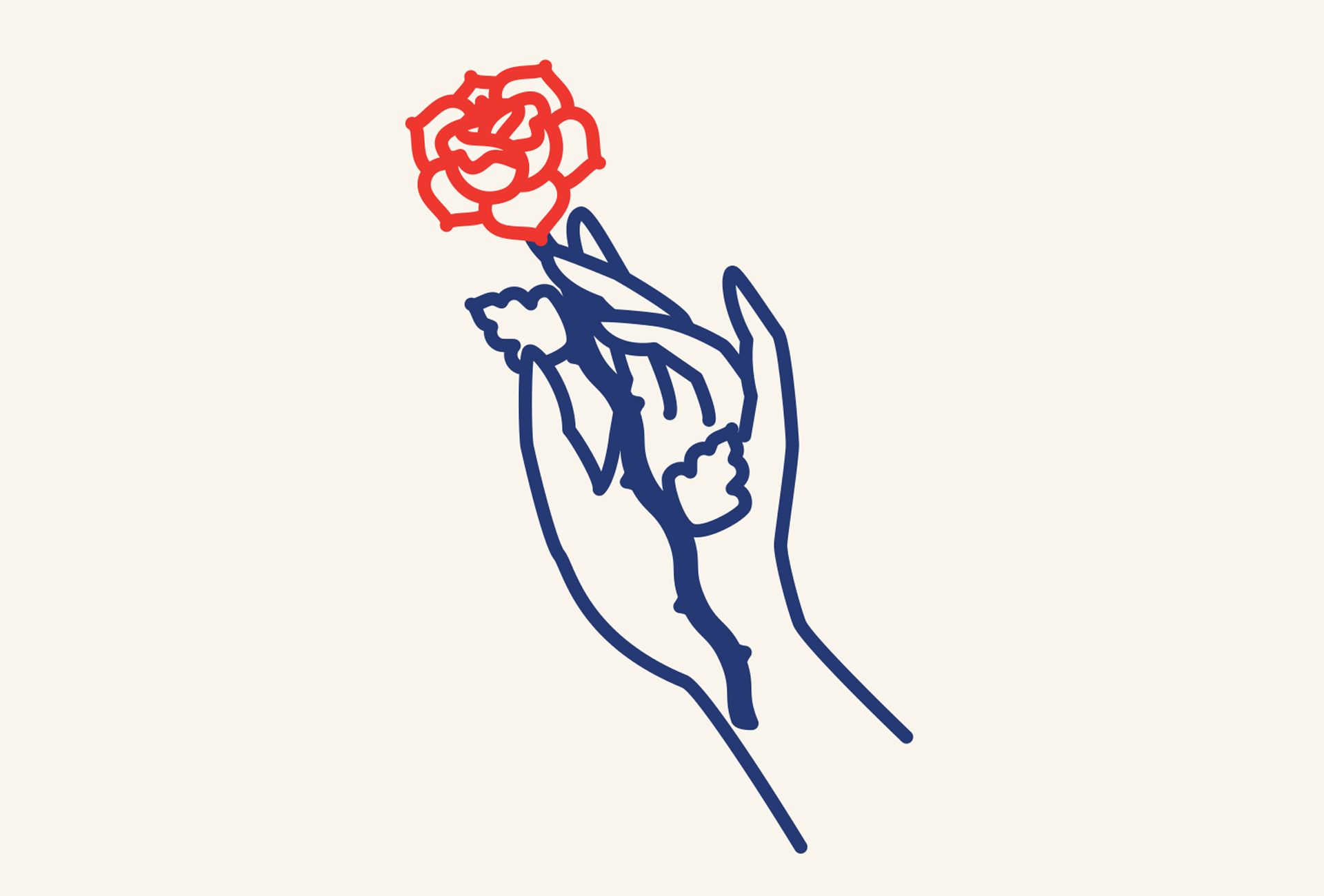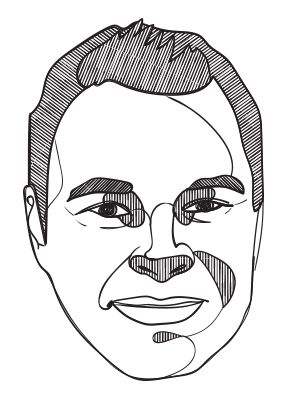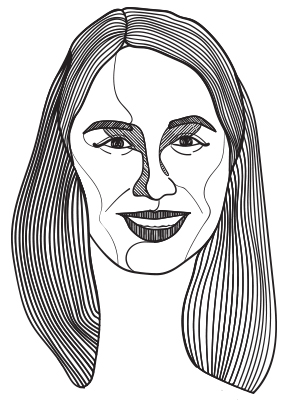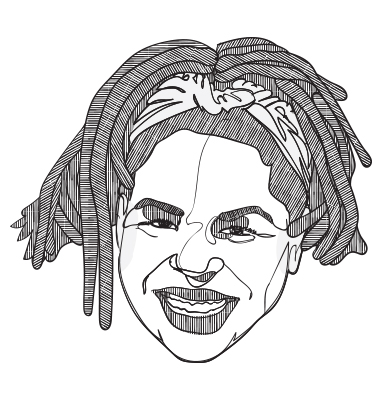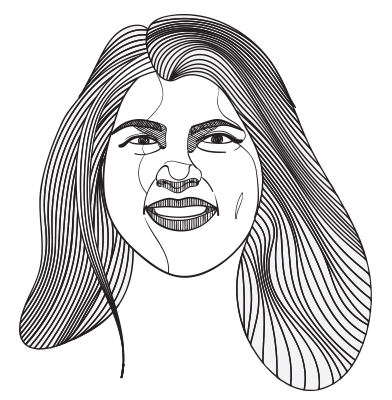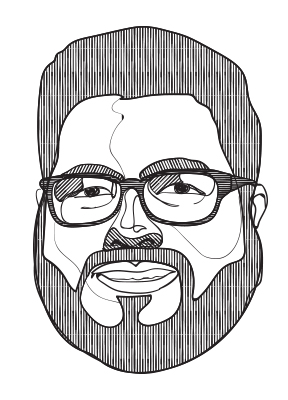It began with a daring escape from Siberia that involved walking more than 600 miles. After five years of exile, a Russian revolutionary named David Rapoport found refuge in Belgium, and in 1913 he immigrated to a new life in San Antonio. It was from this man, his father, that Bernard “B” Rapoport drew his inspiration.
“My father taught me three things,” B Rapoport wrote in an address to students on business ethics. “One, protect your name; two, never let a book out of your hands; and three, and most important, have a sense of outrage at injustice.”
In San Antonio, David Rapoport met and married Reva Feldman, who was also a Russian immigrant and the daughter of Hasidic Jews. B was born in 1917, and he and the family lived in poverty during and after the Depression, David selling blankets from a pushcart to earn a living.
After a childhood facing eviction and discrimination, and a car accident that confined him to bed for a year and a half and left him with a permanent limp, B made it to The University of Texas at Austin, where he worked his way through school and graduated with a degree in economics in 1939.
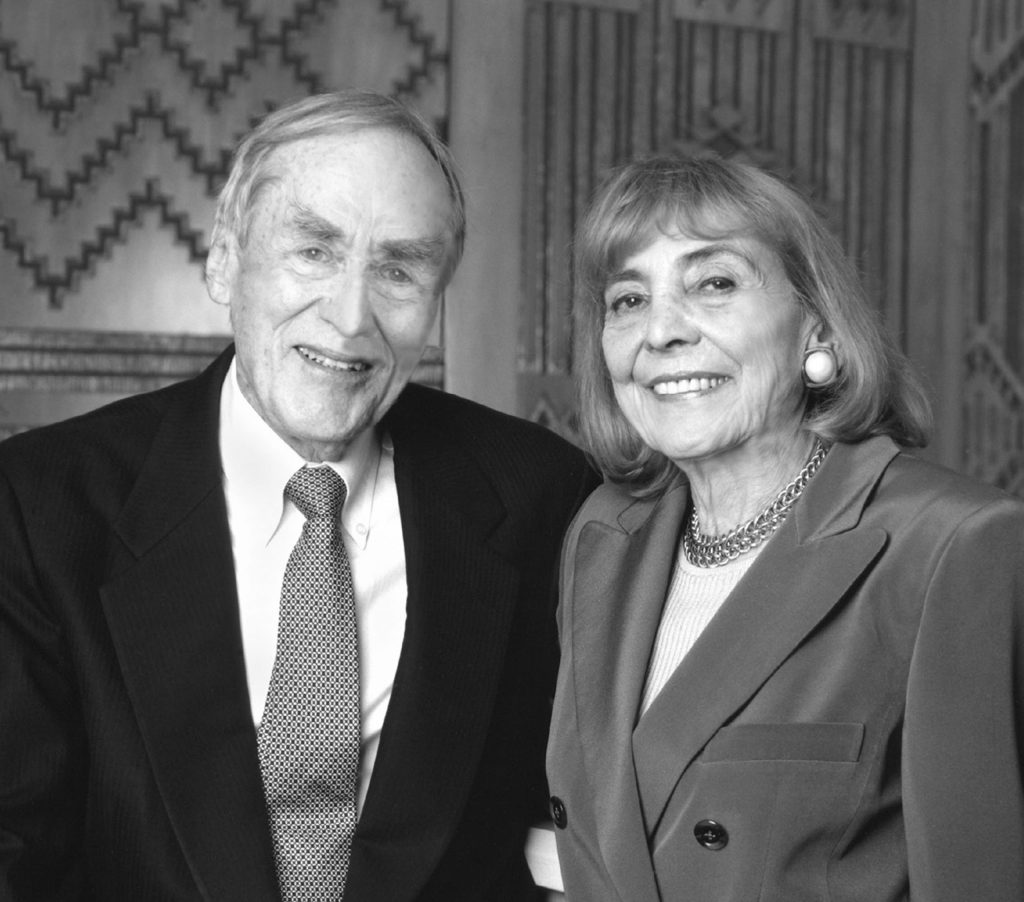
In 1942, B met Audre Newman in Waco. They went on a blind date, where they argued about whether women should wear eye shadow, and Audre asked to be taken home. The following day, B showed up on her doorstep with flowers and proposed. They married a month later on Valentine’s Day.
Audre Newman Rapoport was born in Chicago in 1923. At age 3, she and her mother, Waco-native Josephine Newman, moved to Waco, a town Audre would be passionate about for the rest of her life. She attended UT Austin as well, and worked tirelessly in public service and politics.
In the 1950s, the Rapoports founded the American Income Life Insurance Company, which found its success selling policies to labor unions. They spent the first five years establishing the business in Indiana, but in 1956 Audre insisted that both the family – Audre, B and their young son, Ronald – and the business move to Waco.
The Rapoports established The Bernard and Audre Rapoport Foundation in 1987 to focus on areas that they were most passionate about: education, arts and culture, democracy and civic participation, health, community building and social services.
It was through this foundation that the Rapoport Service Scholarship program was established in the College of Liberal Arts in 2001. B approached the college himself, interested in creating a scholarship that reflected his experience as a liberal arts undergraduate student, combined with his advocacy for community engagement and civic life.
In April 2012, B died at the age of 94. He and Audre had been married for 70 years. Audre became the president of the Rapoport Foundation after his death, running and guiding it before she died in April 2016 at the age of 92. Their son, Ronald, now leads the foundation.
THE SCHOLARSHIP PROGRAM
The Rapoport Service Scholarship was founded on three tenets emphasized by B and Audre: community service, academic coursework and leadership development. With this program, the Rapoports’ goal was to train community leaders who would then provide service to their communities.
They also wanted to help support students financially while developing their civic awareness and responsibility. Applicants, who must be freshmen in the College of Liberal Arts, are considered on both financial need and academic merit. Those selected, typically 12-15 students annually, receive $10,000 per year, a total of $30,000 per student, as well as an Apple MacBook.
But the monetary gift is only a portion of the support Rapoport scholars receive. The scholarship is rooted in service learning, so the 200-hour community service requirement for scholars each summer isn’t the only component of their experience.
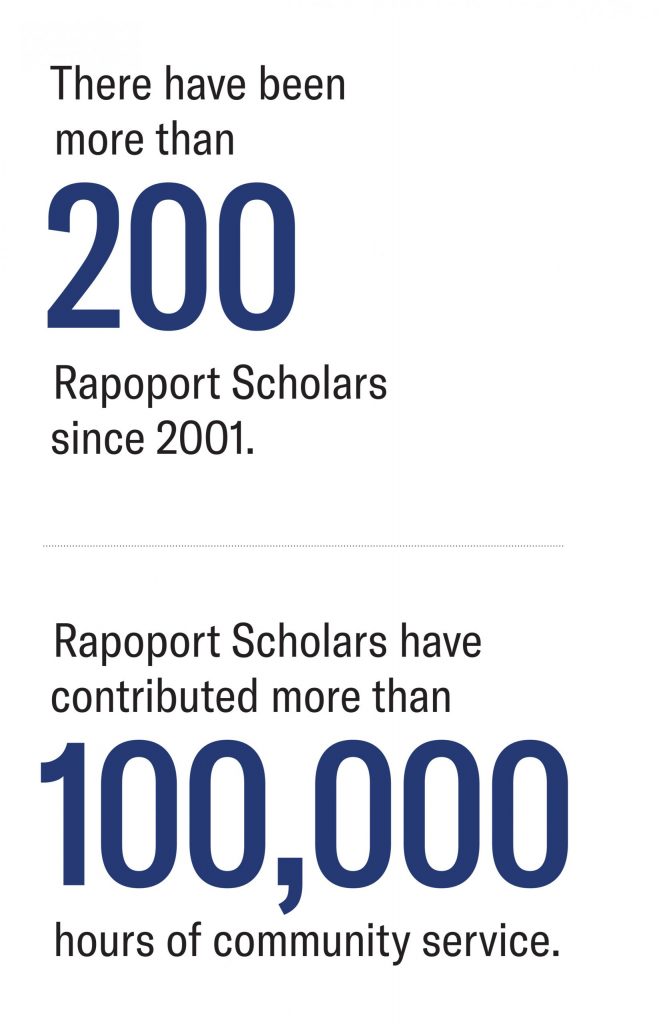
“Service learning means there’s an academic component to the service that you do,” says Eric Bowles, who serves as the program’s assistant director, as well as a teacher and mentor to the Rapoport scholars. “It’s a reflection piece.
“The idea, I think from the beginning, was to give students a space to be able to talk about their service,” Bowles says. “So that’s what makes it a true service learning experience, instead of just volunteerism or community service.”
As incoming sophomores, Rapoport scholars take a one-hour weekly course, Leadership, Ethics, and Society, taught by Bowles, which challenges students to discuss issues that influence society including race, gender, inequality and discrimination. Students learn about systems of privilege and power in society, how they work and how people and society as a whole are connected to them.
With that knowledge, scholars are assigned groups and set out to design a nonprofit organization that solves a problem within a community.
“They think it’s all about the project, but it’s not,” Bowles says. “They have to resolve a problem by using volunteerism as a cornerstone to what they do. That’s part of it. I want to see the product, and the entire class gets to rate the product. So it’s a group effort the entire way through – we want to pick apart what they did and try to improve it.
“At the end, though, we have a really long discussion about what did you learn from your experience, what did you learn about yourself as a leader, your communication skills. The idea is always to try to connect academics and school with service and work, and your ability to create change.
“That’s a big belief for us; you don’t need any kind of accolades and fancy anything to create change, you can go and create change right now, and that’s an empowering thing.”
Eric Bowles
“That’s a big belief for us; you don’t need any kind of accolades and fancy anything to create change,” Bowles says. “You can go and create change right now, and that’s an empowering thing. ‘Wait a minute, I don’t have to sit around and wait for a grant. I don’t have to sit around and wait for the government. I don’t have to sit around and wait for anybody. I can do this. I’m educated. I’m smart. I know what I’m doing.’ And that’s what we’re trying to do with that first class, is do a quick introduction to some of the themes and then really just empower them and say, go do it. Go create that change.”
As juniors, Rapoport scholars take Civic Engagement and Civic Responsibility with Bowles.
“The whole point of that class is, ‘Are you connecting to the community? If so, how and why?’” Bowles says. “‘And if you’re not, why aren’t you?’ It’s learning how to ask really, really good questions.”
In 2010, the Rapoport Service Scholarship program partnered with the Bridging Disciplines Program (BDP) in the School of Undergraduate Studies to allow select Rapoport scholars to participate in a certificate program made up of 19 hours of coursework that combines classroom, internship and research experience. The BDP allows students to choose one of 16 concentrations based on their specific interests. The most popular categories among Rapoport scholars are social inequality, health and policy; human rights and social justice; social entrepreneurship and nonprofits; children and society; and global studies.
Since the Rapoport Service Scholarship was established in 2001, more than 200 students have received funding and mentorship to encourage their interest in public service. Over the life of the program, Rapoport scholars have contributed more than 100,000 hours of community service, averaging more than 7,000 hours of service per year. Those hours were spent with more than 250 organizations including public schools, government organizations, universities, hospitals, religiously affiliated groups, nonprofit organizations and charities. Each was carefully selected by individual scholars in areas they were most interested in helping make change.
The Rapoport Service Scholarship program has directly benefited hundreds of lives, and indirectly helped untold numbers through each scholar’s service work, as well as the lives reached when Rapoport alumni go into careers in public service. The following are four scholars who were aided in pursuing their passions for helping others as recipients of the Rapoport Service Scholarship.
DR. EMIKO PETROSKY, AN EARLY ALUMNA
Dr. Emiko Petrosky, who serves as a medical officer at the Centers for Disease Control and Prevention in Atlanta, Georgia, is an ’05 humanities alumna who was part of the scholarship program’s second year.
“The Rapoport Service Scholarship does more than simply pay for school. It teaches its recipients the importance of giving back to the community,” Petrosky says. “When I reflect back on the time I spent volunteering through the scholarship, I realize that at some point I began to see community service as not just an activity, something you do in the moment, but as an action.
“An opportunity to improve the world in which we live that requires ongoing action to be effective and sustainable,” she continues. “It can’t be just a one-time event. You have to develop relationships with people and the community to effect change.”
As a Rapoport scholar, Petrosky participated in community service in many settings, from hospitals, to schools, to local nonprofit organizations. These experiences helped shape her future.
“I ultimately chose a career in public health, and I suspect the scholarship influenced my choice to go down that path,” says Petrosky. “Volunteering in so many different organizations allowed me to see the importance of community involvement in health.
“Medicine often focuses on diagnosis and treatment for the individual, but public health focuses on prevention and promoting the health of people and communities in which they live,” she adds.
“Volunteering in so many different organizations allowed me to see the importance of community involvement in health.
Dr. Emiko Petrosky
Petrosky attended medical school at the University of Texas Medical Branch in Galveston and went on to specialize in preventive medicine and public health. At the CDC, she works in violence prevention, studying “trends and patterns in violence so that we can better understand who it is affecting and how, and to try to get to why it is happening so that we can work to prevent it from happening in the first place.”
Becoming a Rapoport scholar was an affirmation that Petrosky’s goals were both valid and reachable.
“I don’t remember a time when I did not want to work in public service,” Petrosky says. “My life has been pretty fantastic, in large part because I have been lucky. I’ve been provided with a set of opportunities that not everyone gets, and I feel it is my duty to give back to a world that has treated me so well. I am so grateful that I was able to participate in this program, and I hope it continues so that future students can learn from it and be influenced in the way that I was.”
LAUREN BIRKS, THE ALUMNA
Lauren Birks graduated from UT Austin in 2013 with a degree in psychology and a UTeach natural sciences middle grades mathematics certification. She received her Master of Social Work from the University of Michigan with concentrations on interpersonal practice for children and youth in families, and completed the school social work certification.
“Unfortunately, I never had the opportunity to meet Mr. Rapoport,” Birks says. “However, I attended his memorial service during my fourth year. I knew Mr. Rapoport was one of a kind in many ways, but attending his memorial service furthered my appreciation, admiration and thankfulness for him believing in me without ever knowing me.
“It was unexpected for a man I never met to have such an impact on my life, and he will forever.”
Lauren Birks
“Hearing stories from so many about how he impacted their lives and others displayed the legacy he left, and I am forever grateful for that,” Birks says. “It was unexpected for a man I never met to have such an impact on my life, and he will forever. Attending his memorial helped me remember too that I am here to advocate for others because I have been given the platform to do so, and I cannot lose sight of that.”
While pursuing her MSW, Birks served in the Peace Corps in Costa Rica from 2014 to 2016 as a youth development volunteer. She participated in the recently retired Master’s International Program, in which the Peace Corps collaborated with various universities as an opportunity for graduate students to incorporate the Peace Corps into their graduate studies. Birks completed a year of her MSW prior to serving, then returned to the University of Michigan to finish her degree.
“The Peace Corps’ unofficial motto is ‘The Hardest Job You’ll Ever Love,’ and I completely agree with it,” Birks says. “I lived in a small rural community with limited resources, which taught me to be innovative and creative to implement projects centered on art, recreation and life skills to positively influence self-esteem in youth. Serving in Peace Corps came with its challenges personally and professionally, but that’s what makes it Peace Corps, and I would not change any of it.”
Recently, Birks has taken on the role of school social worker at Hamtramck High School and Early Childhood Elementary in Hamtramck, Michigan. The job allows her to advocate for what she calls her two passions, a youth’s education and mental health. In her position, she is a resource for youths, teachers and the community, “so we can all work together in helping youths achieve their goals and successfully receive an education.”
The lessons that have stuck with Birks are the ones that the Rapoports were hoping to instill when they created the scholarship program.
“Being a Rapoport scholar is more than a scholarship,” Birks says. “The service learning courses created a hands-on learning environment that taught me to really think about being intentional about service and my interactions with others. This scholarship taught me how service should and can be part of your regular lifestyle.”
LIZETH URDIALES, THE RECENT GRADUATE
Public service is personal for Lizeth Urdiales, a 2017 Mexican American studies alumna from Houston.
“I started volunteering when I was 14 years old,” Urdiales says. “I would work with food pantries and summer programs in my community. If I wasn’t volunteering, I would be the recipient of the services provided, so it was my way to give back to my community for as much as they had given me.”
As a freshman at UT Austin, Urdiales was succeeding academically but was under financial pressure.
“I was already struggling to buy a single $10 book for one of my classes,” Urdiales says. “I was on my way to Barnes & Noble, and I borrowed the funds from a friend. That’s when I got the call announcing that I had received the scholarship. It was super exciting, and I felt a bit better about knowing that I wouldn’t struggle to purchase a $10 book in the following years.
“While I still worked multiple jobs during my collegiate career to keep up with my living expenses and help my family back home, with Rapoport I wasn’t concerned about how I would be covering the expenses for my tuition,” Urdiales says. “Which left me room to be an advocate through being an officer in the League of United Latin American Citizens (LULAC) and the Queer and Trans Students Alliance.”
In addition to her leadership roles in campus organizations, Urdiales volunteered with a variety of nonprofits including Skills4Living, a financial literacy organization for underrepresented communities in Houston; the speech and debate organization that she participated in during high school; and the Greater Austin Hispanic Chamber of Commerce.
“While I still worked multiple jobs during my collegiate career to keep up with my living expenses and help my family back home, with Rapoport I wasn’t concerned about how I would be covering the expenses for my tuition.”
Lizeth Urdiales
Now that she’s graduated, Urdiales says she plans to spend the next two years working before applying to graduate school, pursuing an MBA with a concentration in entrepreneurship.
“I would like to continue my work in focusing on queer and immigrant advocacy,” Urdiales says. “With my MBA, I hope to assist in the expansion of co-operative companies with businesses owned and worked by underrepresented populations. As I go from undocumented student to U.S. permanent resident worker in this country, I’m excited to see how Ican increase my outreach.”
In the time between her undergraduate and graduate education, Urdiales will also be pursuing a creative project.
“Since I’m a Campus Ambassador Alumni with GLAAD, the queer media national organization, between now and grad school I will also be focusing on a media project centered around the intersections of being queer and undocumented,” Urdiales says. “I can’t wait to present it to the world.”
JUAN H. GUERRA, THE STUDENT
Juan H. Guerra is a Rapoport scholar from Eagle Pass, Texas. He is a senior majoring in history and Mexican American studies.
“My parents always raised me with the values of helping others and giving back to your community,” Guerra says.
Lizeth Urdiales was Guerra’s mentor during his freshman year. After they discussed their mutual passion for public service, she introduced him to the scholarship.
“Receiving the news after a day of stress, after a semester of stress, really made all the work I had been putting into my college career worth it so far,” Guerra says. “I won’t lie. After that first year of loans I had to take out to attend UT, I was skeptical on whether or not I would be returning. My family could not afford to send me to UT, so all the loans I had taken out were under my name. After receiving the Rapoport scholarship, I felt a huge weight lifted off my shoulders.
“The money received is not everything, however,” he continues. “After receiving the scholarship, I was able to focus more on education-based public service, not to mention being able to form a bond with other individuals who value public service and want to better their communities as much as I do.”
“My parents always raised me with the values of helping others and giving back to your community.
Juan H. Guerra
As a Rapoport scholar, Guerra has volunteered with Angeles Del Cielo (Angels From Heaven), a nonprofit in his hometown that helps special-needs children and people across the community with tutoring in school subjects, social exposure and trade skills. He also volunteered with Las Colonias Head Start, which provides children from low-income households with a free education before they are enrolled in the school district.
After graduation in the spring, Guerra says he plans to attend graduate school at UT Austin, studying history with a focus on the U.S.-Mexico border. He also wants to return to Eagle Pass to teach. “I feel like that is one of the best ways to help out your community,” Guerra says.
“I plan on continuing to do education- based public service and continue to help the youth,” he adds. “My goal is to eventually become superintendent of the school district in my town. I really want to have an impact on my community and make a significant difference in my hometown.”
THE JOURNEY CONTINUES
David Rapoport could not have made it out of Siberia alive without the help and support of others. People along the way clothed, fed and sheltered him on his journey to a new life in a new country. Learning from his father about that experience was formative in B Rapoport’s life, and he found that he had those values in common with Audre.
The emphasis they placed on public service lives on through the Rapoport Service Scholarship program and through the young scholars whose life journeys the Rapoports so generously support.
